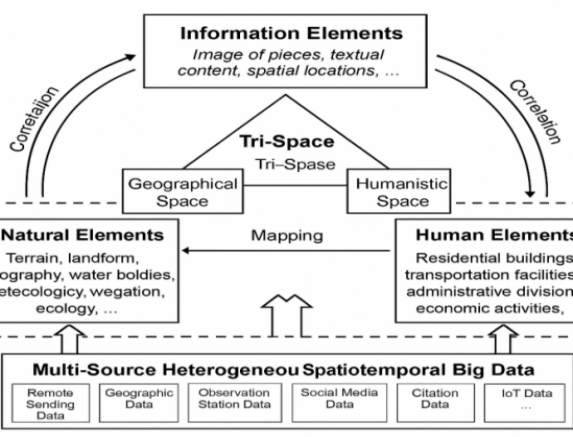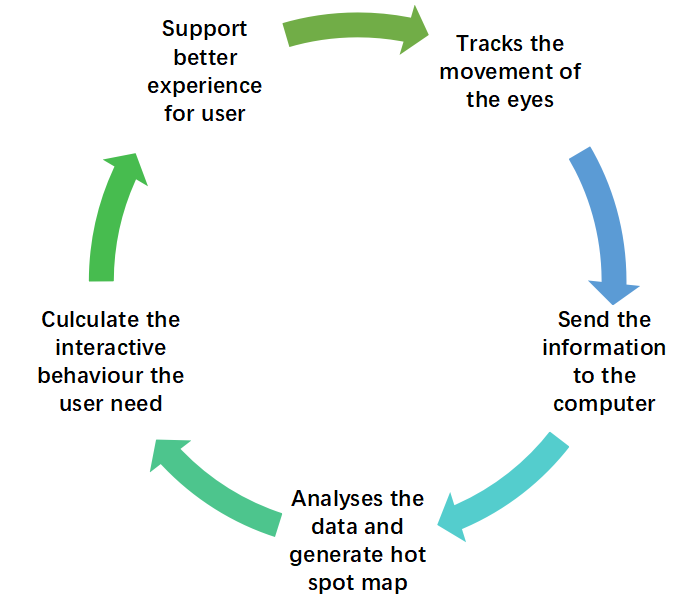

Volume 74
Published on August 2025Volume title: Proceedings of ICADSS 2025 Symposium: Art, Identity, and Society: Interdisciplinary Dialogues

Currently, rapid innovations and the integration of artificial intelligence (AI) and computer technology are significantly transforming smart city planning.Traditional urban planning faces challenges including static design constraints, difficulty integrating large, diverse datasets, and limited public engagement. However, innovations in computer technology and AI can address these issues efficiently, scientifically, and with greater humanistic considerations. Within this context, this study examines the disruptive impacts of technological innovation on smart city planning, emphasizing the roles of virtualization technology, data governance, and human-machine collaboration in reshaping urban planning paradigms. Taking a representative smart city project as a case study, behavioral data from vulnerable groups are collected via an intelligent demand perception system to evaluate the effectiveness of human-machine collaborative technology in enhancing public participation. Consequently, while computer and human-machine collaborative technologies reconstruct planning toolchains, it remains essential to enhance the authenticity of public participation. Future research should prioritize technological ethics and governance innovation to establish a smart city development approach that integrates scientific rigor with humanistic inclusivity.

 View pdf
View pdf


In the rapid development of generative AI, affective AIs have gradually entered public life as a new type of “social companion”, and users show different degrees of emotional attachment and healing experiences in their interactions with AIs. Attachment theory suggests that the attachment patterns formed by individuals in early relationships will be extended to their subsequent intimate interactions, which may also affect their interaction and psychological responses with AIs. In this study, we take attachment type as the independent variable and introduce “human-computer relationship strength” as the mediator variable to explore the psychological outcomes of “emotional healing” and “emotional addiction” in AI interactions by users with different attachment types from a dual-path perspective. The influence mechanism of different attachment types of users on “emotional healing” and “emotional addiction” in AI interaction was explored from a dual-path perspective. A total of 203 users were surveyed, and the ECR-S, PSI, PANAS and adapted PUCAI scales were used to measure the variables. The results found that: anxious and fearful attachment individuals had higher HCI intensity; HCI fully mediated the effect of anxious attachment on emotional addiction; and HCI partially mediated the positive effect of secure attachment on positive emotions but did not significantly affect negative emotions. This study reveals the predictive role of different attachment styles on the psychological outcomes of AI use, emphasizing that individual user differences should be fully considered in AI design and ethical governance to prevent the risk of abuse and leverage the positive value of technology.

 View pdf
View pdf


In recent years, as the population ages and technology develops rapidly, smart community construction has become an important means to meet the aging challenge and enhance the elderly's quality of life. This study focuses on the planning and design of smart communities in Shanghai for the elderly, aiming to solve the problem of how smart communities can better meet the needs of the elderly. This study takes six villages in Xinjing, Beixinjing Street, Changning District, Shanghai as the main research object, and comprehensively uses the methods of field investigation, case analysis and questionnaire survey to deeply analyze the current situation of its intelligence and residents' use feedback. It is found that the six villages in Xinjing have made some achievements in smart facilities, but there are some shortcomings in smart medical care and smart platforms. Based on this, this paper puts forward some targeted strategies, such as reasonable planning of smart facilities according to residents' needs, strengthening the integration of smart medical care and recreational sports facilities, and building a comprehensive smart platform, so as to provide reference examples for the aging construction of smart communities in Shanghai and even the whole country.

 View pdf
View pdf


As typical embodiments of two cultural value systems, Eastern chivalry and Western heroism have profoundly influenced literature and film. This study selects Yang Guo from Jin Yong's martial arts novel The Return of the Condor Heroes (1995 edition) and Batman (Bruce Wayne) from the DC Comics film Batman Begins as representative cases. Through comparative analysis and case study methods, the research explores the similarities and differences in the portrayal of "heroes" in Eastern and Western cultures. The findings indicate that Eastern chivalry prioritizes collectivist patriotism and ethical equilibrium, whereas Western heroism underscores individualistic justice and opposition to systemic corruption. While both exhibit parallels in ethical principles and developmental trajectories, they diverge markedly in their foundational values, behavioral frameworks, social dynamics, and symbolic conclusions.

 View pdf
View pdf



Human-computer interaction (HCI) traditionally relies on manual input devices like mice and keyboards, which can be limiting or inaccessible in certain contexts. Eye-tracking technology, enabling control and interaction through gaze direction, emerges as a promising alternative, offering a more natural and intuitive interface. This report evaluates the applicability and costs of eye-tracking technology for HCI control, assessing its potential to overcome traditional limitations. Recent rapid advancements have expanded eye-tracking beyond laboratories into diverse fields (e.g., user research, software development, education), demonstrating significant potential. Our evaluation of applicability reveals its versatility in scenarios requiring interactive operations, such as optimizing interface design, aiding code comprehension, and enhancing learning analytics. However, technical constraints like accuracy variations (typically 0.5°-1.5°), latency issues (often >100ms), and sensitivity to individual differences hinder universal adoption. Regarding costs, while hardware prices have decreased significantly (e.g., devices now available for $99-$495), widespread implementation faces substantial barriers. These include ongoing maintenance expenses, the need for specialized personnel for calibration and data analysis, and operational constraints like high energy demands and specific environmental requirements, contributing to a high total cost of ownership. Despite these challenges, eye-tracking technology holds considerable promise for revolutionizing HCI paradigms, particularly for accessibility and specialized applications. Its future success hinges on overcoming current cost-effectiveness barriers and technical limitations to achieve broader, practical deployment.

 View pdf
View pdf


In today's world, as environmental issues become increasingly severe, sustainable development is gaining more and more attention, and green consumption is one of the key pathways to achieving sustainable development. Among green products, various advertisements and promotional slogans attract consumers. However, different product marketing strategies influence consumer choices, and product involvement also affects consumers' willingness to buy eco-friendly products. Therefore, this investigation employed a 2x2 factorial experiment to explore how information framing and product involvement influence consumers' willingness, their willingness to spread information, and their brand attitudes, thereby providing theoretical support and practical recommendations for developing effective communication strategies for green brands. The experimental results indicate that both the gain-loss framework and product involvement influence consumer behavior. There is a highly significant positive correlation between product involvement and purchase intention, while the gain-loss framework shows a negative correlation with purchase intention. However, product involvement is the more critical influencing factor.

 View pdf
View pdf


This paper presents a comprehensive review of Beijing’s urban development planning, focusing on its development process, current situation, and future optimization directions. Firstly, it outlines key changes in urban layout and development strategies across different policy periods. Then, it analyzes Beijing's urban planning from three core dimensions: economy, transportation, and population, summarizing development patterns and evaluating advantages and disadvantages. Economically, Beijing has promoted development through spatial planning for consumption and production, implementing an industrial map and a commercial consumption layout plan to guide industries and improve enterprise efficiency. In transportation, the city has worked to optimize spatial structure to better support industrial and consumption needs. Regarding population, Beijing’s demographic evolution reflects shifts in urban positioning, with planning efforts moving from rapid growth to stable, coordinated development. As China’s political, cultural, and innovation hub, Beijing should continue embracing concepts of innovation, coordination, green development, openness, and sharing. Scientific urban planning plays a vital role in enhancing development quality, improving residents’ well-being, and providing valuable insights for future planning both in Beijing and other cities.

 View pdf
View pdf



William Faulkner’s A Rose for Emily is widely discussed for its non-linear narrative, yet few studies have approached it from a linguistic perspective. This paper investigates the narrative structure in the novel through Segmented Discourse Representation Theory (SDRT), a prominent framework in discourse coherence analysis. The study aims to examine the application of SDRT to reveal underlying discourse relations in literary texts and offer new insights into the author’s intentions. By dividing the text into discrete segments and identifying the coherence relations between them, the analysis discovers the logical connections that drive the narrative, even among temporal disruptions. The findings of the study indicate that Faulkner’s fragmented narrative structure is intentional, serving specific literary purposes that enhance reader engagement and contribute to the development of the plot, the character, and themes. The paper demonstrates that SDRT offers a novel perspective for analyzing coherence in literary texts and expands the application of discourse coherence theories.

 View pdf
View pdf


This paper explores green building design, a sustainable architectural approach that minimizes environmental impact and promotes sustainability throughout a building's life-cycle. It discusses core principles such as energy efficiency, water conservation, sustainable materials use, indoor environmental quality, and integrated design, which have environmental benefits and influence on human health and productivity. Practical applications include high-performance building envelopes, renewable energy integration, water recycling, and green certification systems like LEED and BREEAM. Future paradigms include net-zero energy and carbon-neutral buildings, regenerative design, climate-resilient construction, and smart buildings using IoT technologies. The paper emphasizes the importance of advancing green building principles and technologies for achieving global sustainability and climate goals while providing economic and health benefits to society.

 View pdf
View pdf


In today’s increasingly visual social media environment, users make rapid judgments about information credibility based on visual cues. Among Chinese Gen Z football fans, Premier League transfer rumors frequently circulate on platforms such as Weibo, Rednote, and WeChat, blending verified and unverified information. This study investigates how digital media watermarks influence the credibility judgments of Chinese Gen Z fans (born 1995–2010) when encountering transfer rumors online. Using qualitative research through semi-structured interviews with 20 frequent users of football-related content, the study analyzes how watermark characteristics (e.g., visibility, origin, platform context) affect trust and skepticism. The findings reveal that while some users still associate watermarks with copyright or authenticity, many no longer see them as reliable credibility signals due to widespread watermark manipulation and platform-specific misunderstandings. Notably, trust increasingly shifts toward first-hand foreign platforms (e.g., Twitter, Instagram), while Chinese platforms face greater skepticism. This research contributes to the understanding of digital visual literacy, challenges conventional assumptions about watermark credibility, and offers insights into sports media consumption and misinformation in cross-cultural online environments.

 View pdf
View pdf




